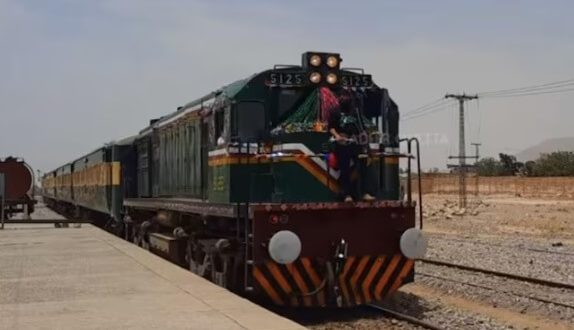Web Desk: Two weeks after the Jaffar Express attack, Balochistan remains in turmoil as train services remain suspended, disrupting daily life and fueling economic hardships.
A crucial meeting has been scheduled for Wednesday to discuss the crisis and explore ways to restore train operations. The prolonged suspension of transport services has triggered a severe food supply shortage, leading to artificial inflation across the province.
With railway routes shut down, alternative transport costs have skyrocketed. Fares for the Bolan route have surged from Rs4,000 to Rs7,000–8,000, while airfare to Karachi has soared to an unaffordable Rs70,000–80,000 for a one-way ticket. Meanwhile, Quetta has been plunged into digital isolation, with internet services down for five consecutive days.
The Jaffar Express, which was attacked while en route from Quetta to Peshawar on March 11, remains out of operation, further burdening travelers. Journeys that once took hours now span days, causing immense inconvenience.
A spokesperson for Pakistan Railways confirmed that discussions on resuming train services would take place soon, with Railways Minister Hanif Abbasi highlighting the absence of security scanners at railway stations, making safety a major concern.
With road and rail transport disrupted, the cost of essential goods has soared. Prices of fruits, vegetables, and other necessities continue to climb, leaving residents struggling to afford basic commodities. As the crisis deepens, the lack of safe, affordable travel options has left the people of Balochistan in a dire situation.




